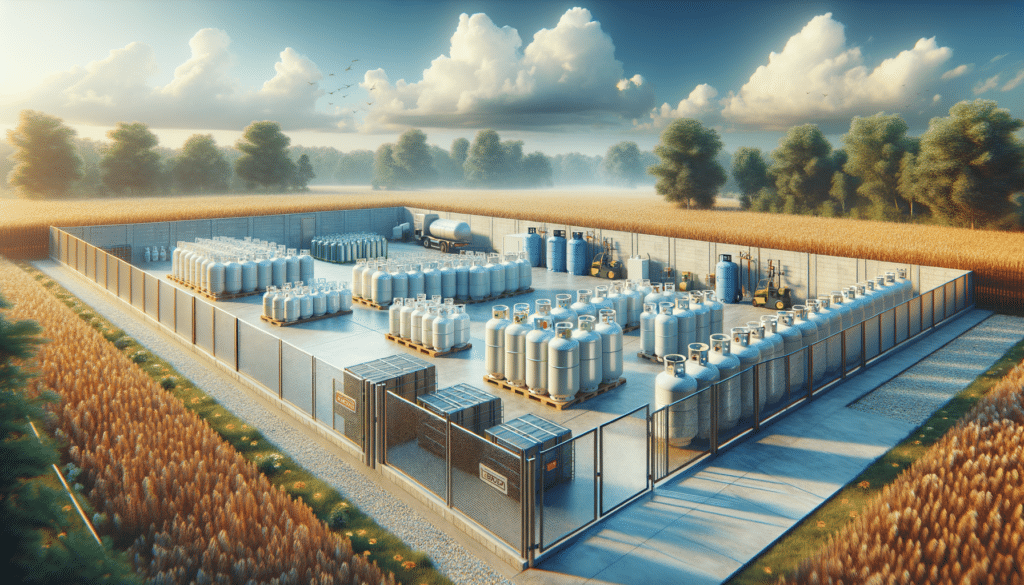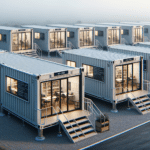Introduction to Propane and LPG Tank Storage
Propane and LPG (liquefied petroleum gas) are common energy sources used in various applications, from heating homes to powering outdoor grills. However, improper storage of these tanks can lead to serious safety hazards. Understanding the importance of safe storage practices is essential for both residential and commercial users. By storing propane tanks securely, you minimize the risk of leaks, fires, and other accidents.
Safe storage is not just about avoiding accidents; it’s also about ensuring the longevity and efficiency of the tanks. Proper storage conditions can prevent rust, corrosion, and other forms of damage that might compromise the tank’s integrity. In this article, we will explore the best practices for storing propane and LPG tanks, focusing on outdoor storage solutions and safety measures.
Principles of Safe Propane Tank Storage
When it comes to storing propane tanks, safety is paramount. The first rule is to always store tanks in a well-ventilated area. This prevents the accumulation of propane gas, which can be hazardous if it reaches a certain concentration. Outdoor storage is often recommended because it naturally provides ventilation and reduces the risk of indoor gas accumulation.
Furthermore, tanks should be kept away from heat sources and open flames. Propane is highly flammable, and exposure to heat can increase the pressure inside the tank, potentially leading to leaks or explosions. It’s also crucial to store tanks upright. This position ensures that the safety valve functions correctly, reducing the risk of leaks.
Another important consideration is the use of dedicated storage solutions. Many homeowners and businesses use propane storage cabinets or cages, which are designed to protect tanks from physical damage and unauthorized access. These structures also help prevent tipping and rolling, which can cause damage to the tank and increase the risk of leaks.
Outdoor Propane Tank Storage Solutions
Outdoor storage is often the preferred method for propane tanks due to the natural ventilation it provides. However, storing tanks outside requires careful planning and consideration of environmental factors. Tanks should be placed on a flat, stable surface to prevent tipping. Additionally, they should be kept away from areas prone to flooding or excessive moisture, as this can lead to rust and corrosion.
In regions with severe weather conditions, additional protective measures may be necessary. For example, in areas with high winds, securing tanks with straps or chains can prevent them from being knocked over. In colder climates, it’s important to ensure that tanks are not exposed to temperatures below freezing, which can affect the gas pressure and flow.
Using a dedicated storage cage or cabinet is highly recommended for outdoor storage. These structures not only protect the tanks from environmental elements but also offer security against theft and unauthorized access. When choosing a storage solution, look for materials that are weather-resistant and durable to ensure long-term protection.
Understanding Propane and LPG Cylinder Storage
While propane tanks are commonly used for larger applications, LPG cylinders are often utilized for smaller-scale needs, such as portable heaters and camping stoves. Despite their size, LPG cylinders require the same level of care and attention when it comes to storage.
Like propane tanks, LPG cylinders should be stored upright in a well-ventilated area. It’s important to avoid storing them in basements or other enclosed spaces where gas could accumulate. Additionally, cylinders should be regularly inspected for signs of damage or wear, such as rust or dents, which could compromise their integrity.
For added safety, consider using a storage rack specifically designed for LPG cylinders. These racks keep cylinders organized and secure, preventing them from rolling or tipping over. They also make it easier to access and inspect each cylinder, ensuring that they are safe for use.
Conclusion: Ensuring Safety and Compliance
Proper storage of propane tanks and LPG cylinders is essential for maintaining safety and compliance with regulations. By following best practices for outdoor storage and using dedicated storage solutions, you can protect your home or business from potential hazards. Regular inspections and maintenance are also crucial to ensure that tanks and cylinders remain in good condition and function safely.
Whether you’re a homeowner using a small propane cylinder for a backyard grill or a business owner managing a large LPG storage tank, understanding and implementing safe storage practices is key. By doing so, you not only protect your property and those around you but also contribute to a safer and more efficient use of these valuable energy resources.


